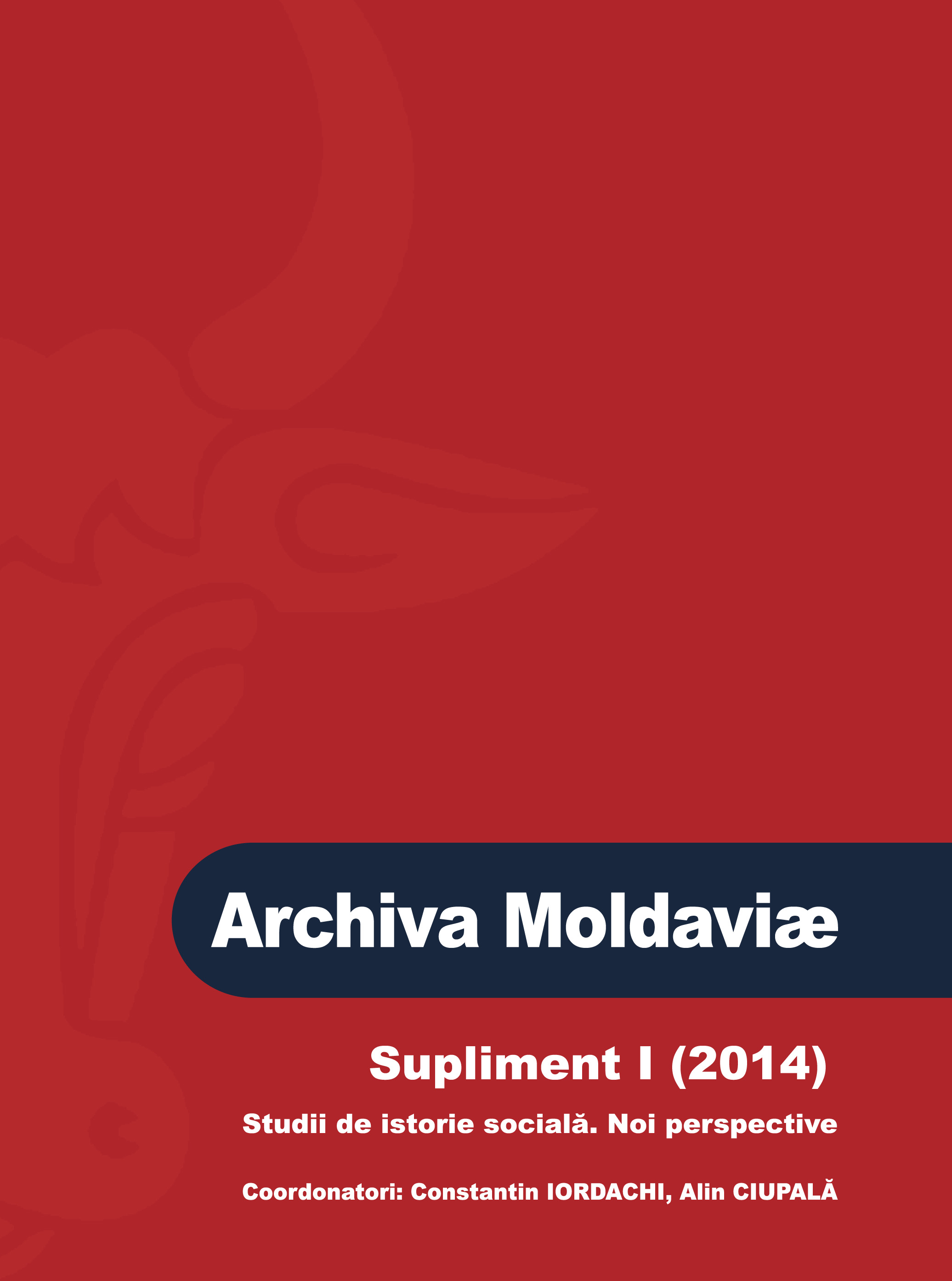Afaceri private, cârmuire imperială şi modernizare: un proiect de reformă la frontiera dunăreană ruso-otomană, 1800-1817
Private Business, Imperial Rule and Modernization: A Draft Project of Reform at the Russian-Ottoman Danubian Frontier, 1800-1817
Author(s): Ştefania CostacheSubject(s): 19th Century
Published by: Societatea de Studii Istorice din România
Keywords: social history of empires; modernization; imperial borders; Otoman Empire; Tsarist Empire; lease; Manuc Mirzayan; Wallachia; Bessarabia.
Summary/Abstract: In 1817, the former Ottoman creditor, official and diplomat of Armenian origin Manuc Mirzayan submitted to the czar a project for the construction of a city to stimulate local welfare on the Russian-Ottoman borderland of Bassarabia, which the Czarist Empire had annexed from the Ottoman Empire in 1812. Manuc died shortly after and the czar rejected his project, opting instead to gradually strengthen imperial control of the borderland. This study focuses on Manuc’s proposal to inquire: How could a runaway Ottoman imperial official propose a project for the prosperity of a borderland under Russian authority and expect it to be granted? By asking such a question the study hints at the continuities between the Ottoman and Russian methods of imperial rule on the borderland, which allowed Manuc to preserve his prestige and political agency. More importantly, the study aims to explain the meaning of Manuc’s claim to become a city-builder, in the context where imperialofficials of the Ottoman or Czarist Empires did not customarily advance such a claim. Thus, it argues that transformations in Ottoman rule were responsible with the appearance, at the European Ottoman-Czarist borderland, of elites that redefined their power as being based on the promotion of social welfare and which claimed the reallocation of imperial resources for this purpose. The making of such claims can be defined, in accordance with the revisionist literature about modernity, as a form of modernization alternative to the Eurocentric model. In other words, the article suggests that internal social and political transformations of non-European empires could be analyzed as stimulents for models of modernization other than the transplant of European institutions. The article is divided in four sections. The first briefly narrates the historical context of the Ottoman tributaries Wallachia and Moldavia at the end of the 18th and beginning of the 19th century, particularly the changes in the rule of the territories that passed from Ottoman to Russian control. The second recreates Manuc’s biography from the beginning of his activity at Rusçuk, in the Ottoman Empire, until his death in Czarist Bessarabia, to reveal the social and political networks in the Ottoman borderland. The third section examines the parallel phenomena of tax-farming in the borderland and in other Ottoman territories as manifestations of an empire-wide transformation: the imperial elites’ appropriation of public revenues. The last part explains how Manuc envisioned the redistribution of public sources as a stimulant for social change.
Journal: Archiva Moldaviae
- Issue Year: VI/2014
- Issue No: Suppl.1
- Page Range: 77-96
- Page Count: 20
- Language: Romanian

